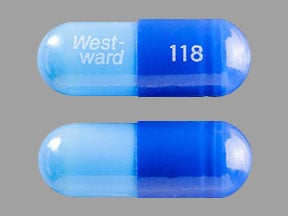
Mitigare Coupons & Savings Card – Discount Prices from $42.64
Brand for: Colchicine
My prescription
Edit
0.6MG, Colchicine (30 Capsules)
Select pharmacy

CVS
$42.64
COUPON PRICE
Walgreens
$60.66
COUPON PRICE
Albertsons
$94.83
COUPON PRICE
Walmart
$148.43
COUPON PRICEMitigare savings card
Show this card to your pharmacist
CVS
$42.64
BIN
ID
PCN
GRP
019876
LH7D0B64B5
CHIPPO
LHX
Powered by
Related colchicum alkaloids prescriptions
More prescriptions for gout
Related colchicum alkaloids prescriptions
More prescriptions for gout
Price history for Mitigare (brand) & Colchicine (generic)
30 Capsules, 0.6MG
Average retail price for Mitigare
Average retail price for Colchicine
Average SaveHealth price for Colchicine
Our price history data is based on aggregated prescription data collected from participating pharmacies in America. Our prescription data updates daily to reflect the latest price changes. If you notice a missing data point, it means there wasn't sufficient data available to generate a monetary value for that date.
Over the last 12 months, the average discount price of Mitigare is $88.68 using the SaveHealth savings card. That's an average savings of 62.04% on Mitigare with our discount card.
*Retail prices are based on pharmacy claims data, and may not be accurate when we don't have enough claims.
Mitigare (Colchicine) dosage forms
Dosage Quantity Price from Per unit 0.6MG 30 Capsules $42.64 $1.42 0.6MG 3 Capsules $11.37 $3.79 0.6MG 10 Capsules $26.41 $2.64 0.6MG 60 Capsules $66.97 $1.12 0.6MG 90 Capsules $99.31 $1.10
| Dosage | Quantity | Price from | Per unit |
|---|---|---|---|
| 0.6MG | 30 Capsules | $42.64 | $1.42 |
| 0.6MG | 3 Capsules | $11.37 | $3.79 |
| 0.6MG | 10 Capsules | $26.41 | $2.64 |
| 0.6MG | 60 Capsules | $66.97 | $1.12 |
| 0.6MG | 90 Capsules | $99.31 | $1.10 |
Is Mitigare the same as colchicine?
Yes, Mitigare is a brand name for colchicine. They contain the same active ingredient and are used for similar medical purposes.
What is Mitigare used to treat?
Mitigare is used to prevent gout flares in adults. It contains colchicine, which helps reduce the frequency of these painful episodes.
What is the generic for Mitigare medication?
The generic for Mitigare is colchicine.
What are the side effects of Mitigare?
Mitigare, which contains the active ingredient colchicine, may cause several side effects. Common side effects include gastrointestinal issues such as diarrhea, nausea, vomiting, and abdominal pain. Less common but more serious side effects can include muscle pain or weakness, numbness or tingling in fingers or toes, unusual bleeding or bruising, and signs of infection like fever or sore throat. It is important for individuals to contact their healthcare provider if they experience any severe or concerning symptoms.
